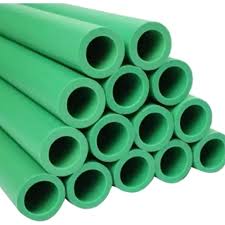Sep . 28, 2024 20:13 Back to list
Agricultural HDPE Pipe Solutions from Leading Manufacturers for Efficient Irrigation Systems
The Role of HDPE Pipes in Agriculture A Comprehensive Overview
High-Density Polyethylene (HDPE) pipes have transformed the agricultural sector, offering innovative solutions for water management, irrigation, and drainage. Their popularity stems from their unique properties, including durability, flexibility, resistance to corrosion, and ease of installation. In this article, we delve into the benefits of HDPE pipes for agricultural applications, the factors driving their adoption, and the considerations for manufacturers in this competitive industry.
Advantages of HDPE Pipes in Agriculture
1. Durability and Longevity One of the most significant advantages of HDPE pipes is their exceptional resistance to environmental factors such as UV radiation, chemicals, and extreme weather conditions. This longevity translates to reduced maintenance costs and increased reliability, making them an ideal choice for agricultural environments where water delivery systems must withstand harsh conditions.
2. Flexibility and Lightweight HDPE pipes are inherently flexible, allowing for easy bending and installation even in uneven terrains. Their lightweight nature means that they can be transported and handled with ease, reducing labor costs and time during installation. Farmers can quickly set up irrigation systems with fewer resources dedicated to transportation and installation.
3. Corrosion and Chemical Resistance Unlike traditional materials such as metal or concrete, HDPE pipes do not corrode or degrade when exposed to various chemicals commonly found in agricultural runoff. This resistance helps prevent soil contamination, ensuring that water quality remains high, which is critical for both crop health and environmental sustainability.
4. Hydraulic Efficiency The smooth interior surface of HDPE pipes minimizes friction loss during water flow, ensuring efficient transmission of water. This enhanced hydraulic performance can lead to better irrigation practices, conserving water resources, and improving crop yield.
5. Cost-Effectiveness Over time, the durability and low maintenance requirements of HDPE pipes can lead to significant cost savings for agricultural operations. Although the initial investment might be higher than traditional piping systems, the long-term benefits often outweigh the upfront costs, making HDPE pipes an economically viable choice for many farmers.
Factors Driving Adoption
hdpe pipe for agriculture manufacturer

The increasing awareness of water scarcity and the need for efficient irrigation techniques are driving the adoption of HDPE pipes in agriculture. As climate change continues to affect weather patterns, farmers are recognizing the importance of investing in systems that optimize water use. Additionally, government incentives and subsidies for sustainable farming practices have encouraged more farmers to switch to advanced irrigation systems, including those utilizing HDPE piping.
Considerations for Manufacturers
For manufacturers of HDPE pipes for agriculture, several considerations must be kept in mind to remain competitive in this growing market
1. Quality Control Ensuring high-quality production is crucial for maintaining the integrity and reliability of HDPE pipes. This can involve regular testing and adherence to industry standards to meet the demands of agricultural applications.
2. Innovation and Technology Embracing new technologies and manufacturing techniques can lead to the development of enhanced HDPE products, such as pipes with integrated sensors for monitoring water flow and quality. Investing in research and development can keep manufacturers at the forefront of the industry.
3. Sustainability Practices As consumers become more environmentally conscious, manufacturers should consider incorporating sustainable practices in their production processes. This could involve using recycled materials or implementing energy-efficient manufacturing processes.
4. Customer Education Educating customers about the benefits and proper use of HDPE pipes can help to increase adoption rates. Providing resources, training, and support to farmers can lead to better installations and enhanced satisfaction with the product.
Conclusion
HDPE pipes are revolutionizing the agricultural landscape by providing a reliable, efficient, and sustainable solution for water management. Their numerous benefits, coupled with the growing emphasis on efficient irrigation practices, position them as essential tools in modern agriculture. For manufacturers, understanding the market dynamics and prioritizing quality and innovation will be key to thriving in this burgeoning sector. As agriculture continues to evolve in response to environmental challenges, HDPE pipes stand out as a resilient choice for the future.
-
High-Quality PVC Borehole Pipes Durable & Versatile Pipe Solutions
NewsJul.08,2025
-
High-Quality PVC Perforated Pipes for Efficient Drainage Leading Manufacturers & Factories
NewsJul.08,2025
-
High-Quality PVC Borehole Pipes Durable Pipe Solutions by Leading Manufacturer
NewsJul.08,2025
-
High-Quality PVC Borehole Pipes Reliable PVC Pipe Manufacturer Solutions
NewsJul.07,2025
-
High-Quality UPVC Drain Pipes Durable HDPE & Drain Pipe Solutions
NewsJul.07,2025
-
High-Quality Conduit Pipes & HDPE Conduit Fittings Manufacturer Reliable Factory Supply
NewsJul.06,2025

